
Malé: The Vibrant Heart of the Maldives
Malé, the bustling capital of the Maldives, offers a striking contrast to the serene atolls and azure waters the country is famous for. This compact city, set on an island just 1.7 kilometers long and 1 kilometer wide, is a lively hub of activity with a rich cultural tapestry and a myriad of attractions. Explore the historical Hukuru Miskiy, also known as the Friday Mosque, which dates back to 1658 and is revered for its intricate coral-stone architecture. Nearby, the Maldives Islamic Centre with its grand golden dome is a modern architectural marvel and a central place of worship. For a glimpse into the local lifestyle, visit the bustling Malé Fish Market where the daily catch is traded, or stroll through the local markets offering fresh produce and traditional Maldivian goods. Dive into the history of the Maldives at the National Museum, housed in a former Sultan’s palace, where you can find artifacts ranging from royal antiques to ancient relics. After a day of exploration, unwind at one of the many waterfront cafes that offer stunning views of the Indian Ocean. Though small in size, Malé's charm lies in its blend of old and new, creating an unforgettable experience for every traveler.
Local tips in Malé
- Dress modestly when visiting religious sites such as mosques.
- The best way to get around Malé is on foot due to its compact size.
- Visit the fish market early in the morning to see the lively trading and freshest catches.
- Tap water is not safe to drink; always opt for bottled water.
- Currency used is Maldivian Rufiyaa, but US dollars are widely accepted.
Neighbourhoods in Malé
Malé: The Vibrant Heart of the Maldives
Malé, the bustling capital of the Maldives, offers a striking contrast to the serene atolls and azure waters the country is famous for. This compact city, set on an island just 1.7 kilometers long and 1 kilometer wide, is a lively hub of activity with a rich cultural tapestry and a myriad of attractions. Explore the historical Hukuru Miskiy, also known as the Friday Mosque, which dates back to 1658 and is revered for its intricate coral-stone architecture. Nearby, the Maldives Islamic Centre with its grand golden dome is a modern architectural marvel and a central place of worship. For a glimpse into the local lifestyle, visit the bustling Malé Fish Market where the daily catch is traded, or stroll through the local markets offering fresh produce and traditional Maldivian goods. Dive into the history of the Maldives at the National Museum, housed in a former Sultan’s palace, where you can find artifacts ranging from royal antiques to ancient relics. After a day of exploration, unwind at one of the many waterfront cafes that offer stunning views of the Indian Ocean. Though small in size, Malé's charm lies in its blend of old and new, creating an unforgettable experience for every traveler.
When is the best time to go to Malé?
Iconic landmarks you can’t miss
Sultan Park
Escape to tranquility in the heart of Malé at Sultan Park, a historic green space with lush gardens and a peaceful atmosphere.
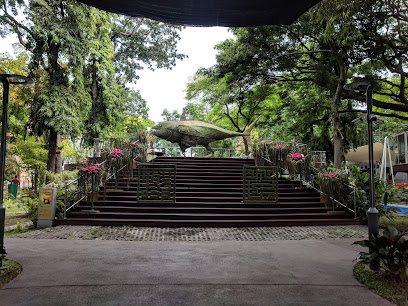
Republic Square
Experience the heart of Malé at Republic Square: a vibrant park where culture, history, and community converge in the Maldives capital.
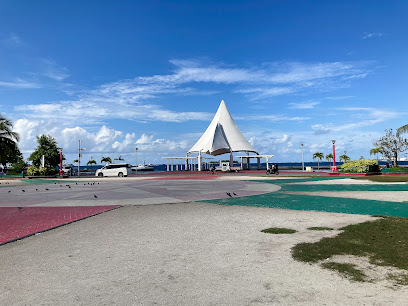
National Museum, Maldives
Discover the Maldives' cultural heritage at the National Museum in Malé, showcasing artifacts from ancient civilizations to the modern era.

Hukuru Miskiyy (مسجد الجمعة القديم في ماليه)
Discover the Maldives' oldest mosque, a coral stone marvel with intricate carvings, a historic cemetery, and a glimpse into Maldivian heritage.
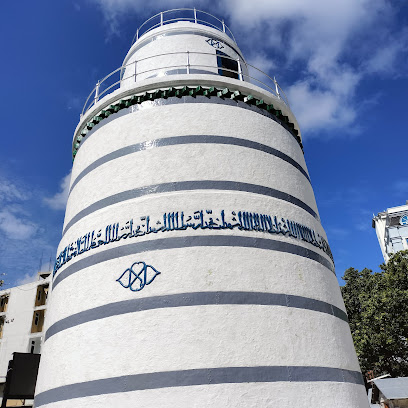
Whale Submarine
Explore the underwater wonders of the Maldives in a comfortable submarine. A unique adventure for all ages!
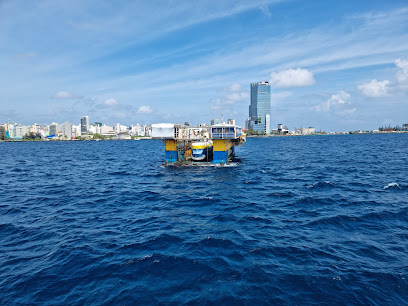
Artificial Beach
Experience the charm of a man-made beach in the heart of Malé, Maldives – perfect for relaxation, recreation, and cultural events.
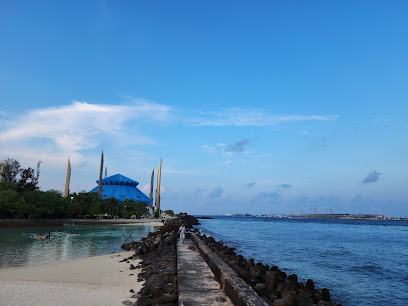
Tsunami Monument
A solemn memorial in Malé, commemorating the lives lost in the 2004 tsunami and honoring the resilience of the Maldivian people.
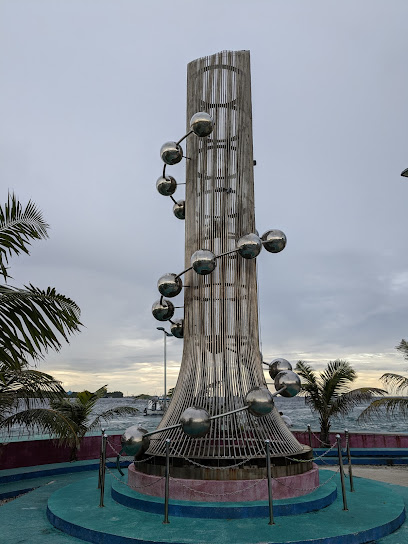
Presidential Jetty
Experience the vibrant heart of Malé at the Presidential Jetty, your gateway to the stunning islands of the Maldives.
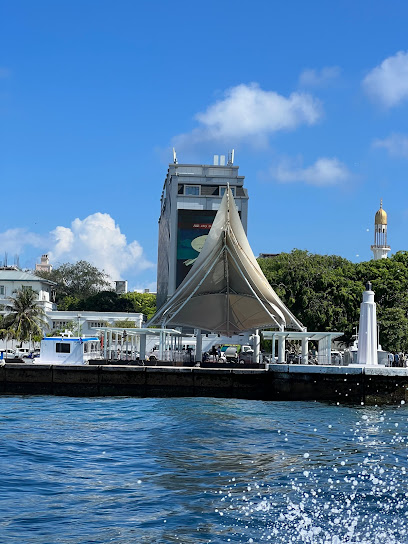
Muliaage (Palace)
Visit Muliaage in Male, the official residence of the President of the Maldives, showcasing colonial architecture and Maldivian heritage.
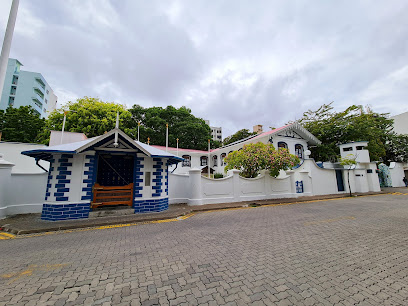
Victory Monument
A tribute to Maldivian bravery and resilience, commemorating the nation's victory over the 1988 coup attempt and its journey to independence.
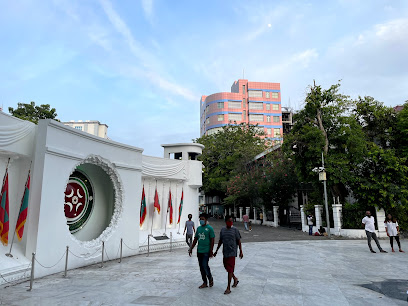
Medhu Ziyaaraiy
Visit Medhu Ziyaaraiy in Malé, a historical shrine honoring the scholar who brought Islam to the Maldives in the 12th century.
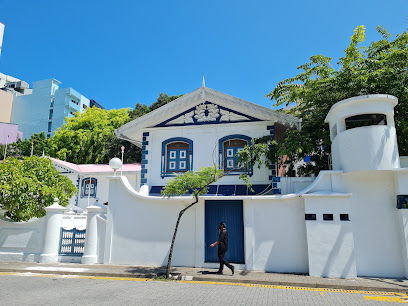
Ibrahim Rasgefaanuge Ziyaaraiy Shrine
Discover the Ibrahim Rasgefaanuge Ziyaaraiy Shrine in Malé: a serene monument honoring Maldivian heritage and Islamic tradition.
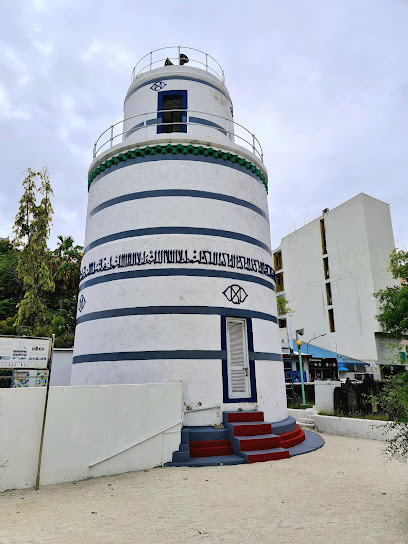
National Flag (Bodu Dhidha)
Discover the National Flag (Bodu Dhidha) in Malé, a grand symbol of the Maldives, representing unity and cultural pride amidst vibrant city life.
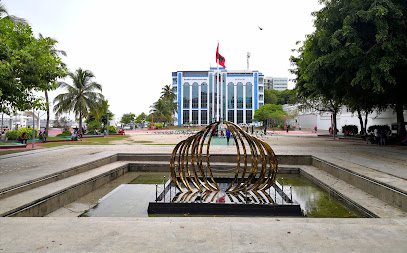
Sinamale Monument
A landmark symbolizing the enduring friendship between the Maldives and China, reflecting cultural unity and collaboration.
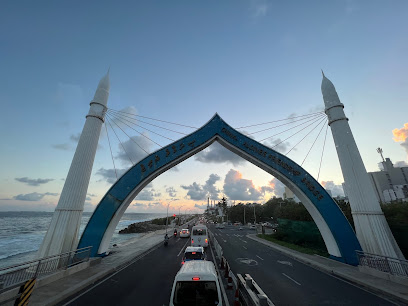
Old National Museum
Discover the Maldives' cultural heritage at the Old National Museum in Malé, showcasing artifacts from ancient civilizations to the Islamic era.
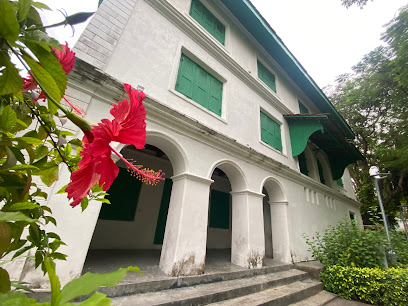
Unmissable attractions to see
Central Park (Hulhumalé)
Explore the stunning Central Park in Hulhumalé, a tranquil oasis offering lush greenery, ocean views, and endless recreational opportunities for every traveler.
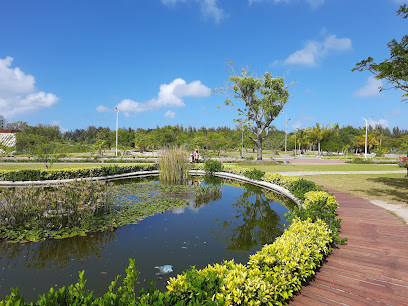
Rasfannu
Discover tranquility at Rasfannu, a lush park in Malé, Maldives, perfect for relaxation and enjoying nature amidst urban life.
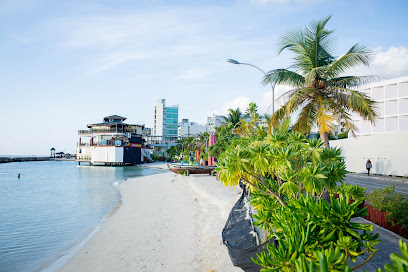
Republic Square
Experience the heart of Malé at Republic Square, a lush city park showcasing culture, history, and stunning landscapes in the Maldives.
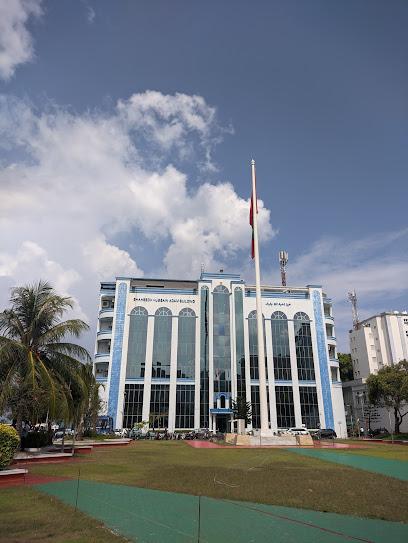
National Museum, Maldives
Uncover the rich cultural tapestry of the Maldives at the National Museum, where history comes alive through captivating exhibits and artifacts.

Lankanfinolhu
Explore the beauty of Lankanfinolhu, a stunning island in the Maldives known for its pristine beaches and vibrant marine life, perfect for relaxation and adventure.
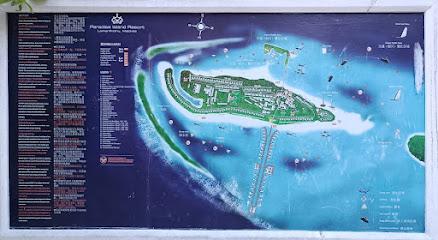
Artificial Beach
Experience the best of urban beach life at Malé's Artificial Beach, where relaxation meets recreation in the heart of the Maldives.
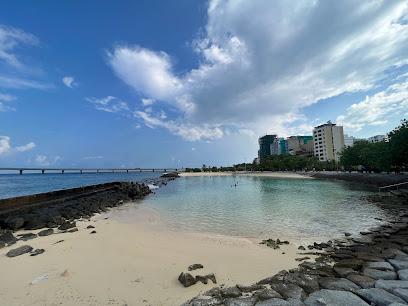
Secret Paradise Maldives Tours
Explore the breathtaking beauty of the Maldives with Secret Paradise Tours, offering tailored adventures and unforgettable experiences in paradise.
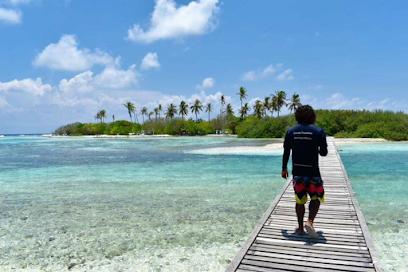
Medhu Ziyaaraiy
Explore the tranquility and rich heritage of Medhu Ziyaaraiy, a historic shrine in Malé, Maldives, celebrating the island nation's Islamic roots.
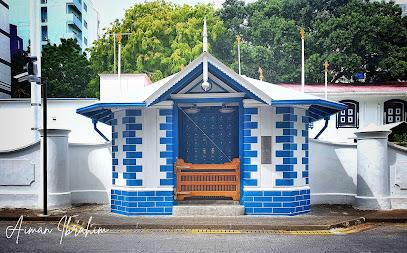
Old Friday Mosque Minaret (Since 1675)
Discover the Old Friday Mosque Minaret in Malé, a historical gem showcasing exquisite coral stone craftsmanship and rich cultural heritage.
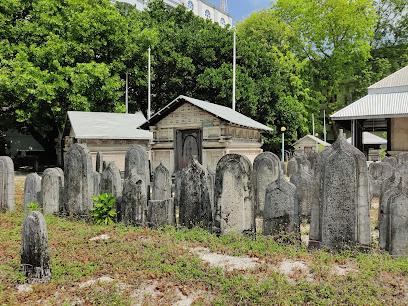
Ibrahim Rasgefaanuge Ziyaaraiy Shrine
Experience the tranquility and rich cultural heritage of the Maldives at Ibrahim Rasgefaanuge Ziyaaraiy Shrine, a serene tourist attraction in Malé.
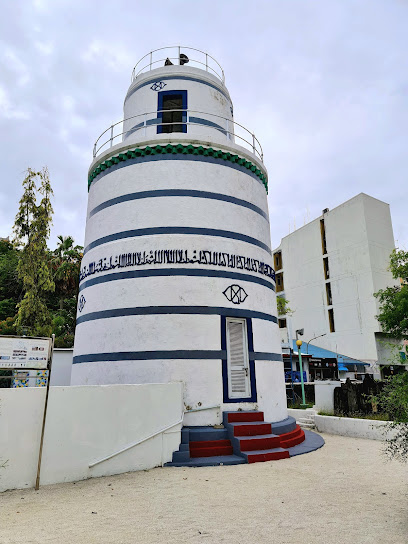
Bis Buru Park
Experience tranquility at Bis Buru Park, a lush urban oasis in Malé perfect for relaxation, picnics, and scenic strolls among nature's beauty.
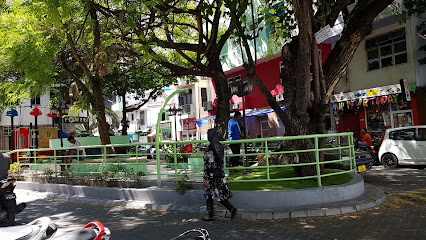
Stingrays Watching
Discover the enchanting world of stingrays in the Maldives, an unforgettable aquatic experience showcasing the beauty of marine life.
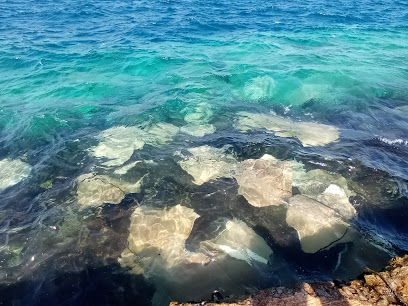
Iskandar Maizan
Discover tranquility at Iskandar Maizan, a lush park in Malé perfect for relaxation, cultural experiences, and connecting with nature.
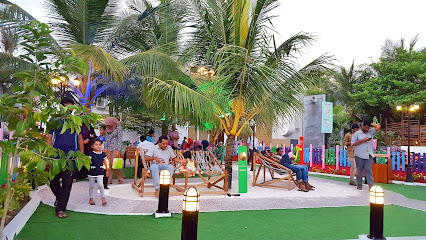
Maldives Discovery Center
Explore the Maldives Discovery Center, where the rich culture and natural beauty of the Maldives come alive through interactive exhibits and expert insights.
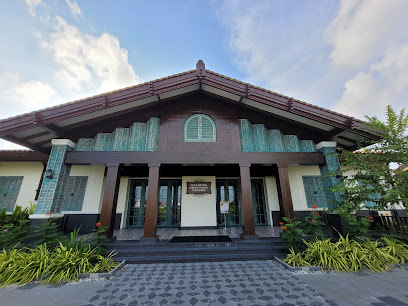
Sandy Beach of swimming track
Experience the serene beauty of the Sandy Beach of Swimming Track in Malé, where relaxation meets adventure in a tropical paradise.
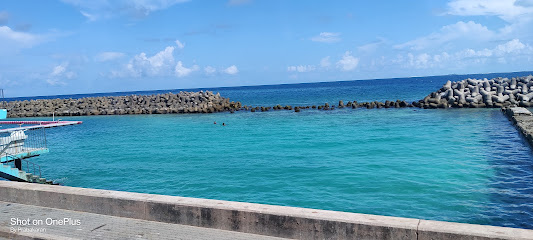
Essential places to dine
Shell Beans
Experience the best of Maldivian cuisine at Shell Beans – where every meal tells a story of flavor and culture.
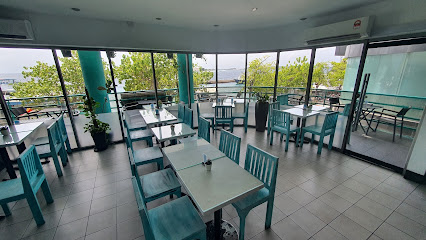
Sea House Café
Experience exquisite Halal dining at Sea House Café in Malé, where Asian flavors meet breathtaking ocean views.
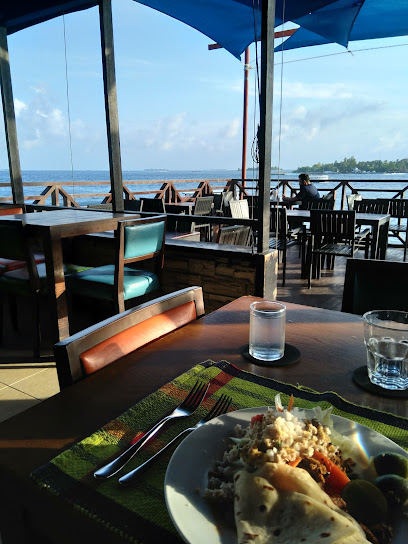
Seagull Café
Experience delightful dining at Seagull Café in Malé, where local flavors meet international cuisine in a cozy setting.
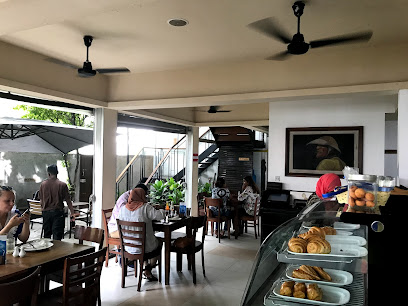
Citron by Lemongrass
Discover the vibrant flavors of Maldivian cuisine at Citron by Lemongrass—an exceptional buffet restaurant in Malé offering diverse culinary delights.
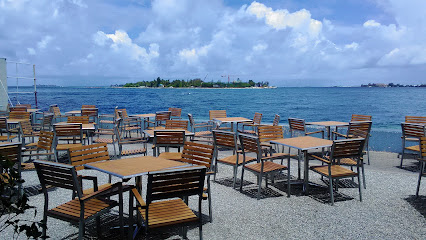
Sala Thai Restaurant
Experience authentic Thai cuisine at Sala Thai Restaurant in Malé – where every dish tells a story.
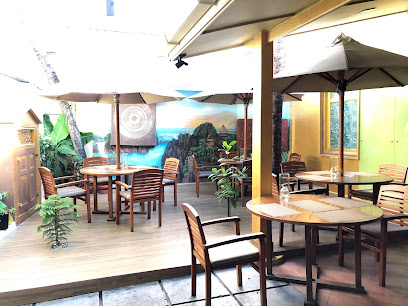
Salt Café & Restaurant
Experience exquisite Italian-inspired cuisine with breathtaking views at Salt Café & Restaurant in Malé.
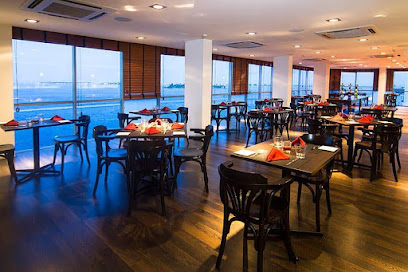
Khalids Biriyani
Experience authentic Indian cuisine at Khalids Biriyani in Malé - home of flavorful biriyanis and delightful dining.
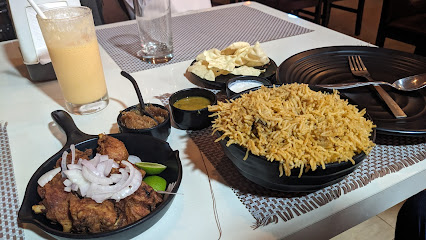
De Public Lounge & Arabic Restaurant
Savor exquisite Arabic cuisine at De Public Lounge & Arabic Restaurant in Malé - a true taste of tradition amidst vibrant surroundings.
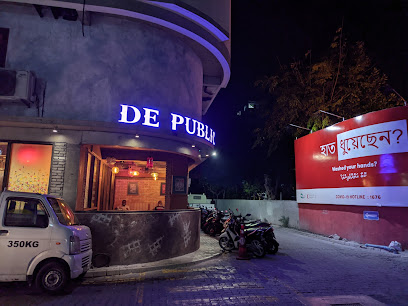
Symphony Restaurant
Experience exquisite Indian cuisine in a family-friendly setting at Symphony Restaurant in Malé - where every meal is a celebration.
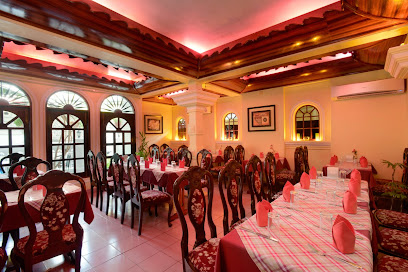
Lemongrass Fifth Restaurant
Discover the flavors of Western, Indian, and Thai cuisine at Malé's hidden gem – Lemongrass Fifth Restaurant.
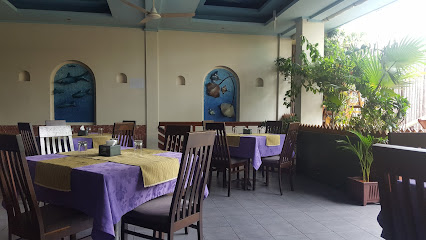
Skyfall Lounge & Restaurant
Discover exquisite dining at Skyfall Lounge & Restaurant with stunning views and a menu that celebrates local flavors in the heart of Malé.
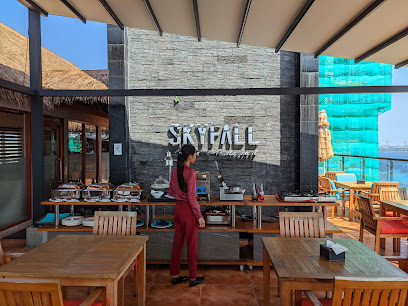
Bamboo Resto
Discover authentic Indian flavors at Bamboo Resto in Malé - where traditional meets modern in a vibrant dining experience.
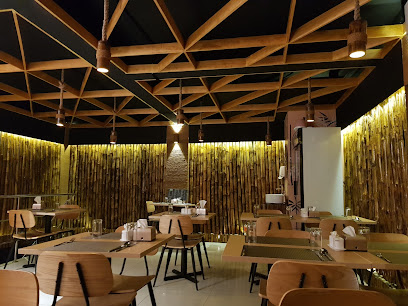
Secret Recipe
Experience exquisite culinary creations at Secret Recipe in Malé - where local flavors meet international flair in an inviting atmosphere.
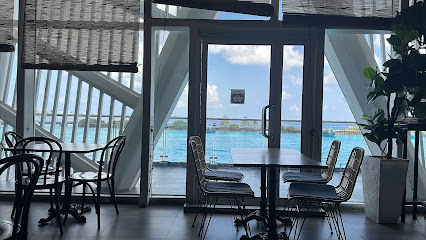
Evening Cafe
Discover Evening Cafe in Malé - where local flavors meet comfort dining in an inviting atmosphere.
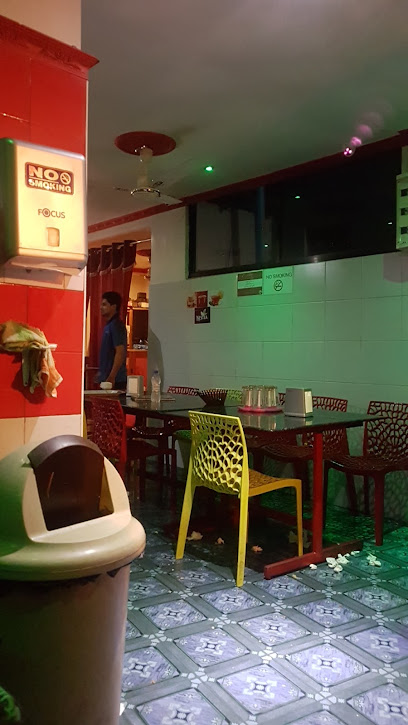
The olive garden restaurant
Experience authentic Italian flavors at The Olive Garden Restaurant in Malé—where culinary tradition meets vibrant ambiance.
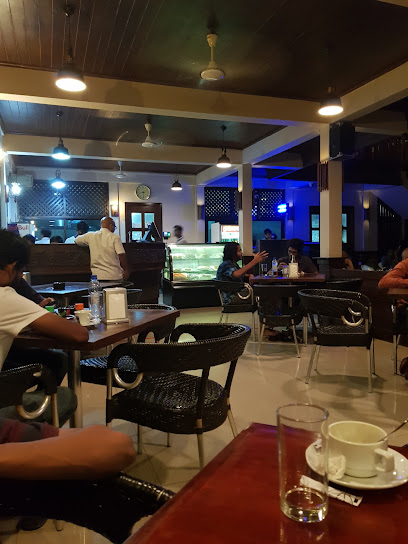
Markets, malls and hidden boutiques
Oevaali Art Shop
Explore the heart of Maldivian creativity at Oevaali Art Shop, where every piece tells a story and every visit is a journey into art.
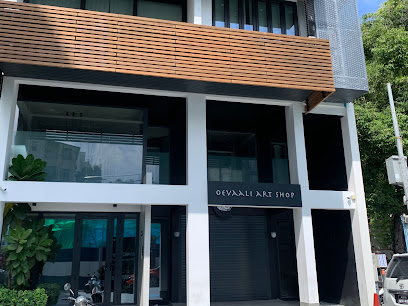
Items
Explore the vibrant Items Department Store in Malé for unique souvenirs, local crafts, and affordable shopping in the heart of the Maldives.
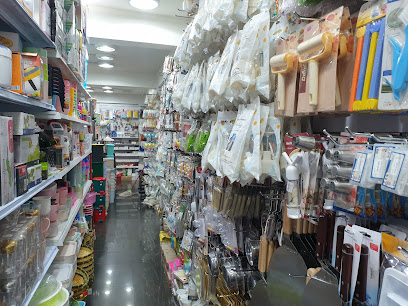
LeCute
Discover a world of exquisite fragrances at LeCute, the premier perfume store in Malé, offering unique scents from local and international brands.
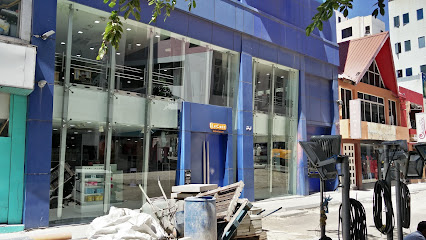
ONHAND The Personalized Centre
Explore ONHAND The Personalized Centre in Malé for unique gifts and custom-made treasures that capture the essence of the Maldives.
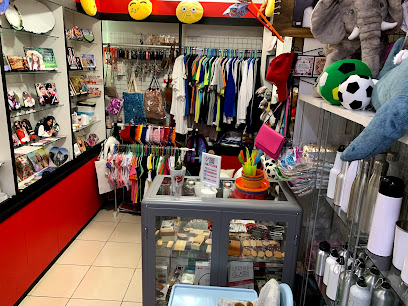
beliZee
Explore the latest trends in fashion and accessories at beliZee, the ultimate shopping destination in Malé, Maldives.
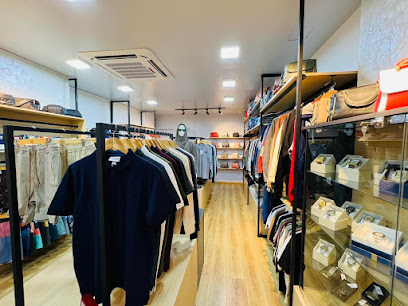
Luxury Shopping Centre
Explore the Luxury Shopping Centre in Malé, where high-end retail meets local charm, offering an unforgettable shopping experience.
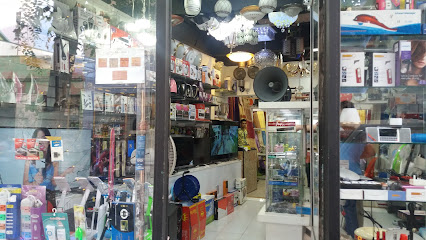
Lost Souvenirs
Explore Lost Souvenirs in Malé for unique, handcrafted treasures that embody the spirit of the Maldives, perfect for gifting or personal keepsakes.
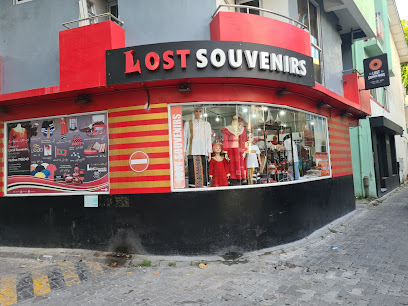
Island Bazaar
Explore the artistic heart of Maldives at Island Bazaar, where unique handicrafts and local culture come together in a beautiful boutique experience.
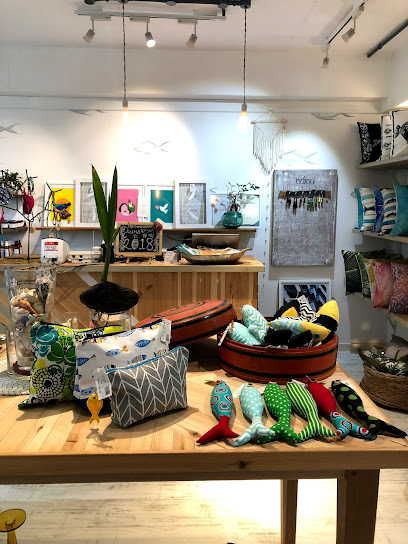
Maldives Online Shop
Explore the Maldives Online Shop for unique local products and handcrafted treasures that embody the spirit of the islands.
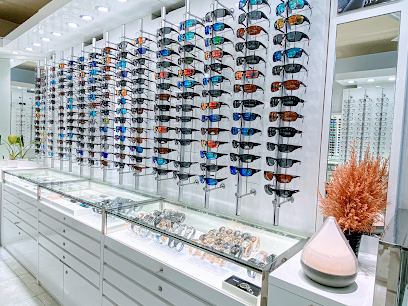
Nespresso Boutique
Experience the art of coffee at the Nespresso Boutique in Malé, where luxury meets flavor in an elegant coffee haven.
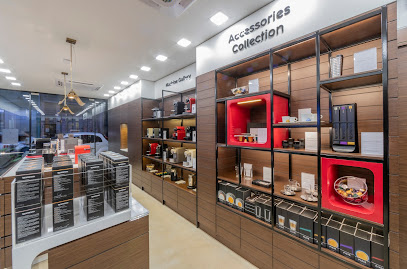
Class Shop
Explore Class Shop in Malé for exquisite perfumes that capture the essence of the Maldives, perfect for souvenirs and gifts.
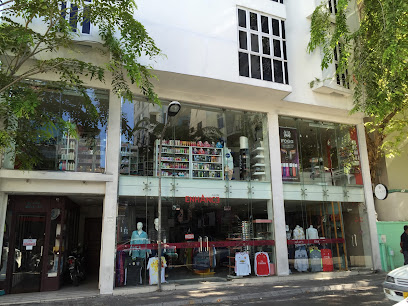
Authentic Maldives
Discover Authentic Maldives: Your destination for unique souvenirs and local art in the heart of Malé, showcasing the vibrant culture of the islands.
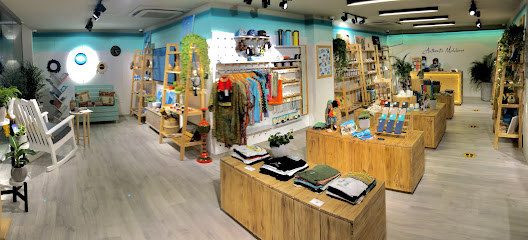
Gift of Love
Explore Gift of Love in Malé for unique souvenirs and traditional Maldivian crafts, perfect for capturing your travel memories.
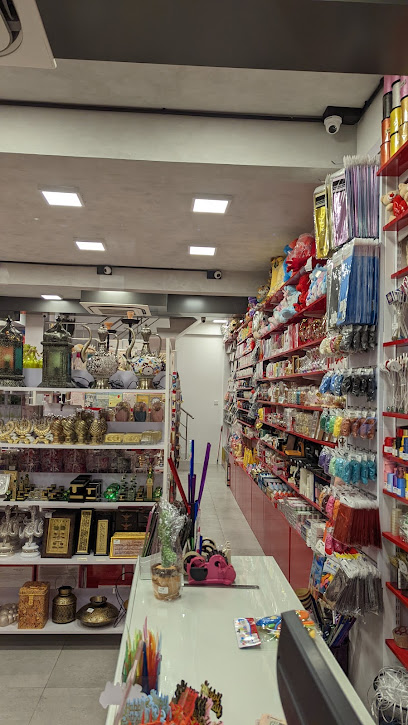
Mango Shop Maldives
Explore the vibrant arts and crafts at Mango Shop Maldives, the perfect destination for unique souvenirs and local artistry in Himmafushi.
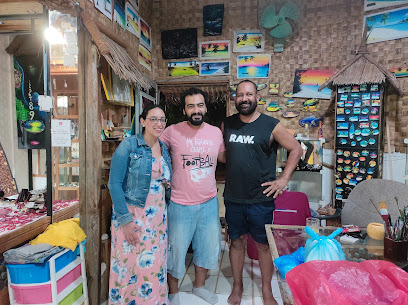
Imna Trade
Discover authentic Maldivian souvenirs at Imna Trade, the perfect gift shop in Malé offering a unique selection of local handicrafts and treasures.
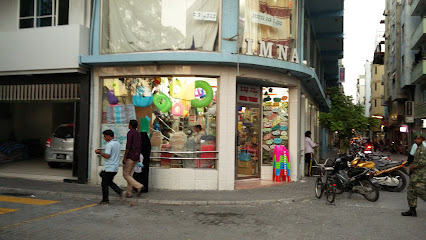
Essential bars & hidden hideouts
St. Regis Hotel Lounge
Experience the epitome of luxury and comfort at St. Regis Hotel Lounge in Malé, the ultimate retreat for discerning travelers.
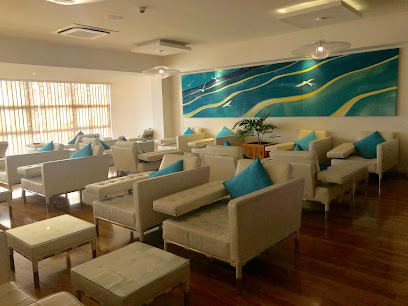
De Public Lounge & Arabic Restaurant
Experience the rich flavors of Arabic cuisine at De Public Lounge & Arabic Restaurant in Malé, where every meal is a culinary adventure.
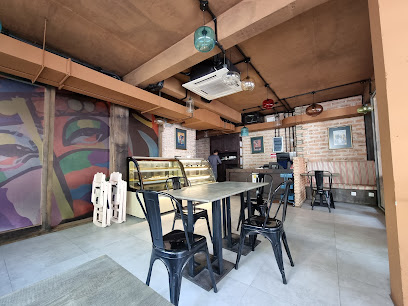
Undhoali Café (Sip & Swing)
Discover the perfect blend of relaxation and entertainment at Undhoali Café, a vibrant bar in the heart of Malé, Maldives.
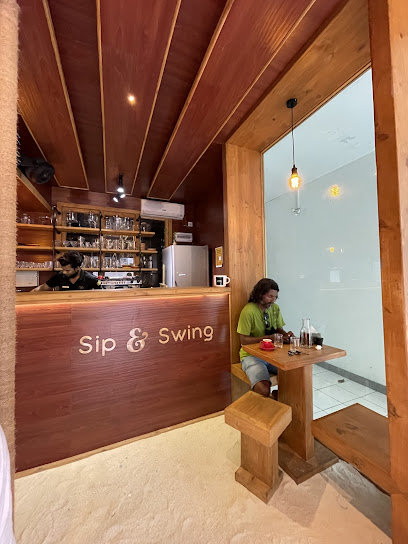
Jazz Café
Discover the rhythmic charm of Jazz Café in Malé, where delightful cuisine meets captivating live jazz performances in a vibrant setting.
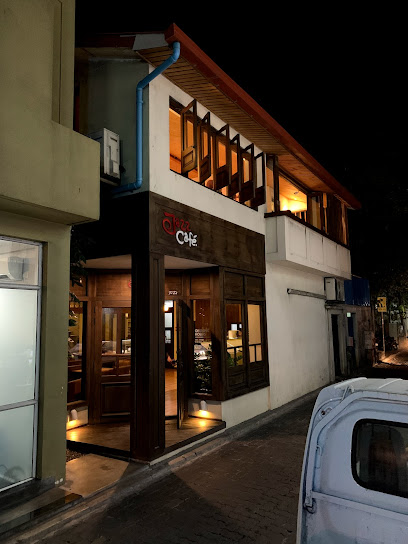
Redwoods Restaurant
Discover Redwoods Restaurant in Malé, a vibrant cafe and karaoke bar offering delicious cuisine and lively entertainment for an unforgettable experience.
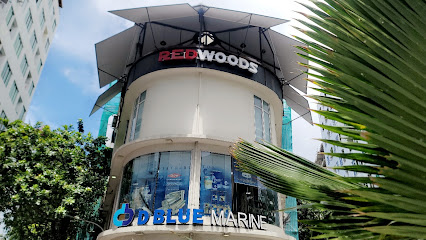
The Conrad Lounge at the Malé International
Experience luxury and relaxation at The Conrad Lounge in Malé International Airport, a serene escape for discerning travelers.
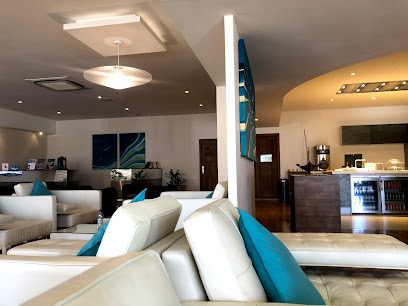
The BlackPearl Restaurant and Lounge
Discover exquisite dining and vibrant lounge experiences at The BlackPearl Restaurant and Lounge in Malé, Maldives. A must-visit culinary destination.
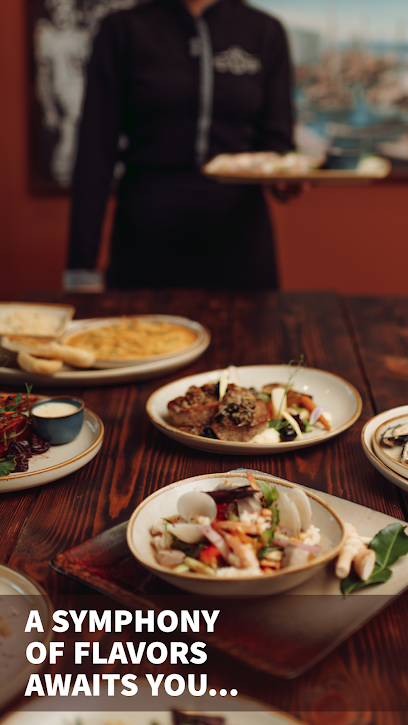
The One
Experience the vibrant nightlife at 'The One', the ultimate karaoke bar in Malé, blending music, culture, and unforgettable memories.
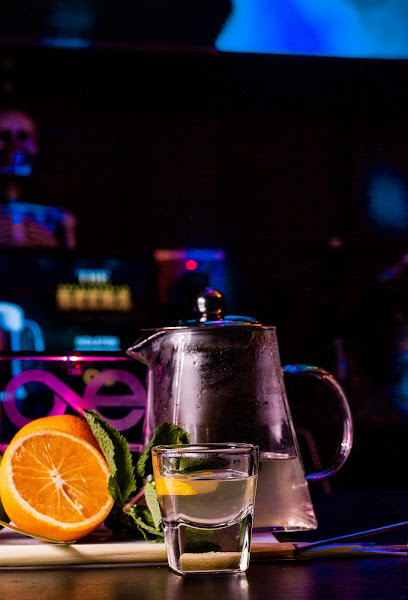
Hideout Café
Discover the vibrant atmosphere of Hideout Café, a perfect blend of coffee culture, delicious dining, and lively nightlife in Malé.
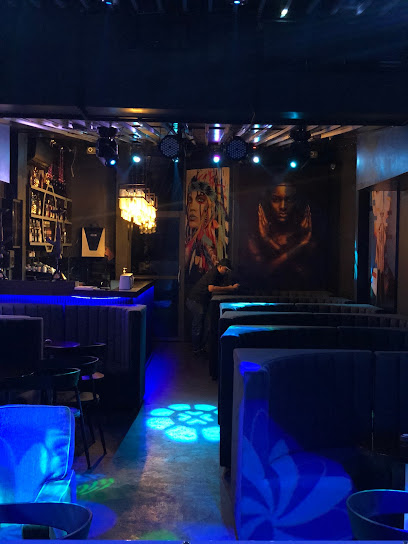
AAA - Lounge
Discover the tranquil oasis of AAA - Lounge in Malé, where comfort meets relaxation for every traveler.
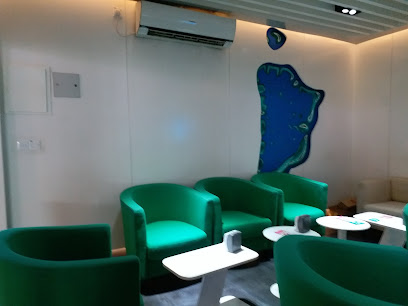
Myst
Discover Myst in Malé: A top-notch hookah bar blending relaxation with delicious café offerings for an unforgettable experience.
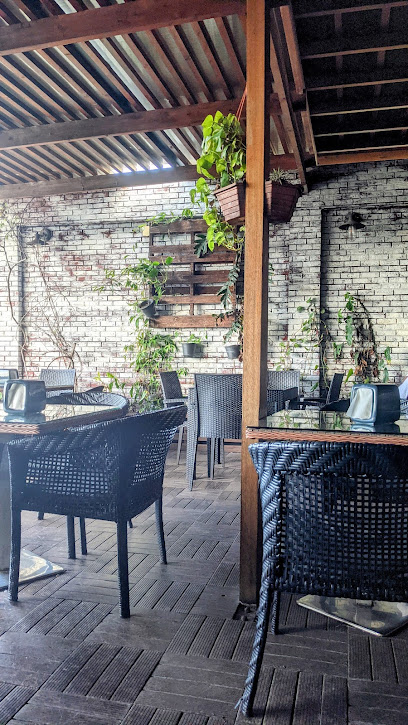
The Fun House
Experience the vibrant nightlife of Malé at The Fun House, a karaoke bar where you can sing your heart out and create unforgettable memories.
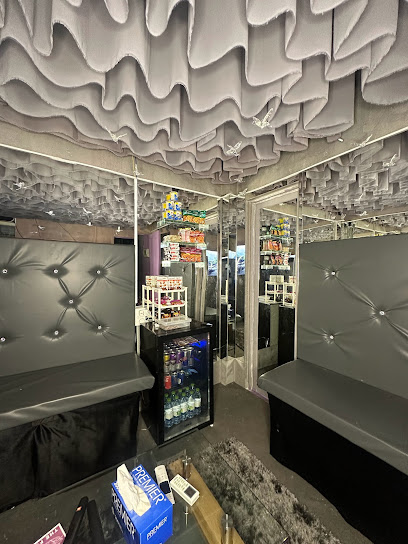
Liyela Lounge
Experience the vibrant nightlife of Malé at Liyela Lounge, where handcrafted cocktails and a relaxing atmosphere await.

Party in da Hood
Experience the lively nightlife of Malé at Party in da Hood, a vibrant bar offering unique drinks and local culture in a welcoming atmosphere.

Local Phrases
-
- Helloމިއަށް
[miāsh] - Goodbyeކަމަށް
[kamaash] - Yesއާ
[aa] - Noނައި
[nai] - Please/You're welcomeޝައްދުވަރުތައް
[juadhurudhā] - Thank youޝައްދުތައް
[shukuriyaa] - Excuse me/Sorryޝުކުވެރައް
[maafuraai] - How are you?ކުރަތައް ތުރެވުން
[kura dhuravehun] - Fine. And you?ދިނެ. އިފުރުން?
[dheenee. ifurun?] - Do you speak English?އިފުރިން ބުލަންވުން?
[ifirin balandhun?] - I don't understandއަދުނެވުން
[adhuvehun]
- Helloމިއަށް
-
- I'd like to see the menu, pleaseމިވަކުތް މެނުނައިވުން
[mivakuv menuvadhin] - I don't eat meatމި މަތުނެވުން
[mi maadhenehun] - Cheers!ޝައްމާ
[shamaa] - I would like to pay, pleaseމި ދައުތުނެވުން
[mi fadenehun]
- I'd like to see the menu, pleaseމިވަކުތް މެނުނައިވުން
-
- Help!ދުއަބު!
[dhuabu!] - Go away!ޤުޔައި!
[haadhi!] - Call the Police!ޕޮލިސް ކައިދުވުނު
[polis kai dhivehun] - Call a doctor!ޑޮކިތައް ކައިދުވުނު
[dokithaai kai dhivehun] - I'm lostމި ފުލުއިވުން
[mi fuleehun] - I'm illމި އިލްލެވުން
[mi irulehun]
- Help!ދުއަބު!
-
- I'd like to buy...މި ދައުތުނެވުން...
[mi fadenehun...] - I'm just lookingމި މެއެންތައް
[mi meendhuve] - How much is it?ކައިނު ދިއުބާ?
[kaainu dhiveya?] - That's too expensiveތައް ދައިތުނު ނަބޭ
[va fahidhu nabi] - Can you lower the price?ކަލު ދައިތުނު ނަބޭ?
[kalu dhiveya nabi?]
- I'd like to buy...މި ދައުތުނެވުން...
-
- What time is it?ކަނޑު ދިއުބާ?
[kaandhu dhiveya?] - It's one o'clockއިތުރު ދިއުބާ
[ifiru dhiveya] - Half past (10)ނައިދުރު (މަނަދު)
[nai dhifru (manadhu)] - Morningދިނެ
[dheenee] - Afternoonއަފިއް
[aafi] - Eveningމަތަން
[maadhu] - Yesterdayއިންވިއަށް
[inviash] - Todayއަގަން
[aviga] - Tomorrowއުޓަތަން
[udhaadhu] - 1ދިނެ
[dheenee] - 2ދިކުރު
[dhikuruh] - 3ތެއި
[behi] - 4ފެރު
[feyru] - 5ކޭތު
[kaidhu] - 6ފުސް
[fashi] - 7ވާނެލް
[vaimale] - 8ބަރު
[baru] - 9ނަބްތަ
[nabudha] - 10މަނަދު
[manadhu]
- What time is it?ކަނޑު ދިއުބާ?
-
- Where's a/the...?ކައިނެ ގޮތު މައިނަލް؟
[kaane gothu maaivan?] - What's the address?ކައިނެ ސަކުނާއިވުން?
[kaane saagandhevun?] - Can you show me (on the map)?ކަލު ނައިބޯޓުވުން (މަފުލްއުތުވުން)?
[kalu nibeudhuve (maafudhavah hamaai)?] - When's the next (bus)?ކައިނެ ދޫތައްތައް?
[kaane dhuvan?] - A ticket (to ....)އައިޓަރަ މައިނަލް (....އަތަން)
[aiidharu maivan (....avandhu)]
- Where's a/the...?ކައިނެ ގޮތު މައިނަލް؟
History of Malé
-
Malé, the capital city of Maldives, traces its origins to ancient times. It is believed to have been founded by the first settlers, the Dravidian people from the Indian subcontinent, around 500 BC. The city served as the royal seat for the Maldivian sultans and was known as the King's Island for centuries.
-
From the 12th century until the 20th century, Malé was the epicenter of the Maldivian Sultanate. The city flourished as a hub of Islamic culture, trade, and politics. The conversion to Islam in 1153 marked a significant transformation, leading to the establishment of Islamic architecture and institutions that still influence the city today.
-
In 1558, the Portuguese invaded and occupied Malé, marking a turbulent period in the city's history. Their rule was characterized by harsh measures and widespread resistance from the Maldivians. This occupation lasted until 1573, when the local hero Muhammad Thakurufaanu led a successful rebellion, restoring Maldivian independence.
-
In the late 19th century, Malé came under British protection. This period, from 1887 to 1965, saw significant changes in the city's infrastructure and governance. The British influence led to modernization efforts, including the introduction of western education and administrative reforms, which laid the groundwork for the Maldives' eventual independence.
-
Malé became the capital of an independent Maldives on July 26, 1965, following the end of the British protectorate. The city witnessed the establishment of the Republic of Maldives in 1968, transitioning from a sultanate to a republic. This era brought about significant political and social changes, including the development of modern governmental institutions.
-
In the latter half of the 20th century, Malé underwent rapid economic transformation. The city's economy shifted from traditional fishing and agriculture to tourism and services. The development of international airports and luxury resorts around Malé turned it into a bustling urban center, attracting visitors from around the globe.
-
Despite modernization, Malé retains a rich cultural heritage. The city is home to historic mosques, such as the Hukuru Miskiy (Friday Mosque), built in 1658, and the Maldives National Museum, which houses artifacts from the pre-Islamic period to the present day. Malé's cultural festivals, traditional music, and dance also reflect the city's vibrant history and traditions.
-
Today, Malé is a bustling metropolis that continues to evolve. The city faces challenges such as rapid urbanization and environmental threats, but it remains the heart of Maldivian life. Contemporary Malé is a blend of old and new, with modern skyscrapers standing alongside historic sites, symbolizing the city's enduring legacy and dynamic future.
Malé Essentials
-
Malé, the capital city of Maldives, is primarily accessed via Velana International Airport (MLE), located on Hulhulé Island, adjacent to the capital. Numerous international airlines offer flights to Velana International Airport from major cities around the world. From the airport, you can reach Malé by a short ferry ride, speedboat, or a domestic flight if you are headed to other atolls.
-
Malé is a small and densely populated city, making walking one of the best ways to explore it. For longer distances, taxis are readily available and are relatively inexpensive. Ferries and speedboats are common modes of transport to nearby islands. Bicycle rentals are also an option for those who prefer cycling. Public buses operate within the city, providing an affordable means of transport.
-
The official currency of Maldives is the Maldivian Rufiyaa (MVR). While major hotels, restaurants, and shops in Malé accept credit cards, it's advisable to carry some cash for smaller establishments and markets. ATMs are widely available throughout the city. Foreign currency can be exchanged at banks, exchange offices, and some hotels.
-
Malé is generally considered safe for tourists, but standard precautions should be taken. Avoid walking alone at night in poorly lit areas and be cautious with your belongings in crowded places. Petty theft, such as pickpocketing, can occur in busy areas like markets and ferry terminals. There are no specific high-crime areas targeting tourists, but always stay vigilant and aware of your surroundings.
-
In case of emergency, dial 119 for police services and 102 for medical emergencies. Velana International Hospital and ADK Hospital are the main medical facilities in Malé. It is advisable to have travel insurance that covers medical emergencies. Pharmacies are available throughout the city for minor health issues and over-the-counter medications.
-
Fashion: Do dress modestly, especially when visiting religious sites. Avoid wearing revealing clothing in public areas. Religion: Do respect local customs and traditions. Always remove your shoes when entering mosques and dress conservatively. Public Transport: Do be respectful and polite when using public transport. Don't eat or drink on buses and ferries. Greetings: Do greet people with a friendly 'As-Salaam-Alaikum'. A handshake is common, but avoid physical contact with the opposite gender unless initiated. Eating & Drinking: Do try local delicacies and accept food offerings graciously. Don't consume alcohol in public places, as it is prohibited outside licensed establishments.
-
To experience Malé like a local, visit the vibrant local markets such as the Malé Fish Market and the Local Market where you can buy fresh produce and traditional Maldivian goods. Engage with locals who are often friendly and eager to share their culture. Don't miss a visit to the Maldives Islamic Centre, one of the most important religious landmarks. For a unique experience, take a stroll along the Artificial Beach, a popular spot for locals to relax and enjoy the sunset.
Trending Landmark in Malé
-
Sultan Park
-
Republic Square
-
National Museum, Maldives
-
Hukuru Miskiyy (مسجد الجمعة القديم في ماليه)
-
Whale Submarine
-
Artificial Beach
-
Tsunami Monument
-
Presidential Jetty
-
Muliaage (Palace)
-
Victory Monument
-
Medhu Ziyaaraiy
-
Ibrahim Rasgefaanuge Ziyaaraiy Shrine
-
National Flag (Bodu Dhidha)
-
Sinamale Monument
-
Old National Museum
Nearby Cities to Malé
-
Things To Do in Hulhumalé
-
Things To Do in Huraa
-
Things To Do in Thulusdhoo
-
Things To Do in Guraidhoo
-
Things To Do in Fulidhoo
-
Things To Do in Thoddoo
-
Things To Do in Ukulhas
-
Things To Do in Dhigurah
-
Things To Do in Maafushi
-
Things To Do in Trivandrum
-
Things To Do in Kanyakumari
-
Things To Do in Kochi
-
Things To Do in Bentota
-
Things To Do in Hikkaduwa
-
Things To Do in Colombo















